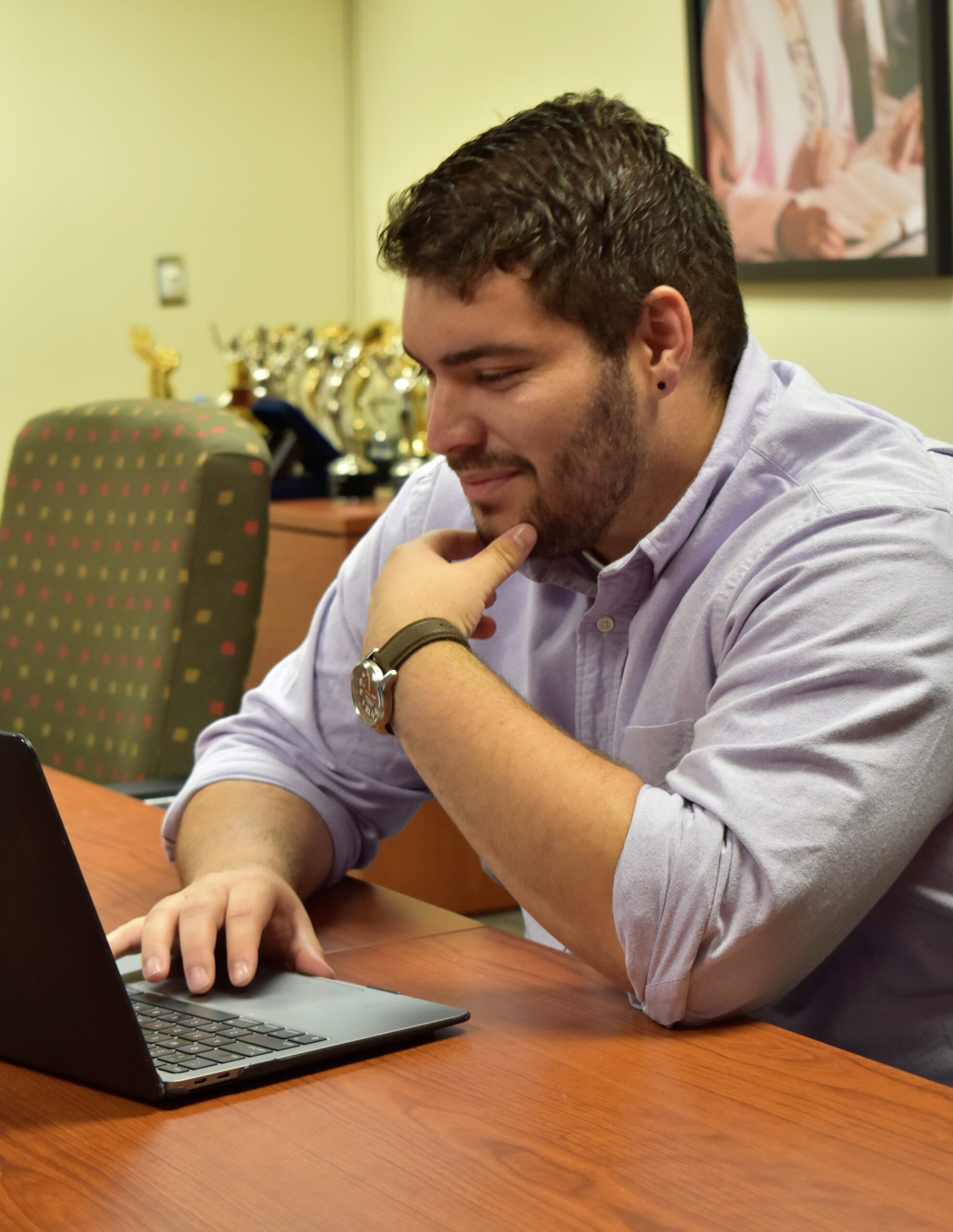
Javier Cintron: Future Doctor Aims to Address Health Inequities
Wiping the sweat from his brow, Javier Cintron listened intently to the Haitian man.
Far from his home in Panama City, Florida, Javier was in Haiti on a research internship while pursuing his undergraduate education in biology and medical anthropology.
As he heard the Haitian man describe the community’s health inequities, Javier thought about what he could do during his internship to help.
That winter, Javier evaluated current efforts to improve the community’s overall nutrition and health and reported his findings to a volunteer group that would decide how to proceed.
His contributions brought attention to potential root causes of health inequities in the community, such as lack of access to clean water.
“They had to pay for a weekly supply of clean water,” Javier explained. “If they didn’t have to pay for this service, that money could go toward treating the protein deficiencies in the community.”
Javier’s rewarding experience in Haiti strengthened his desire to become a doctor dedicated to helping alleviate health inequities and disparities.
Journey to Medicine
Javier – now in his second year of medical school at the Alabama College of Osteopathic Medicine – first learned about health disparities when visiting Puerto Rico where his parents grew up.
The health disparities he saw stemmed from broader inequities, such as lack of access to affordable healthcare and transportation.
His mother, who is a family medicine physician, and his father, a chemical engineer, explained to Javier why health disparities exist and how one might help.
“They really taught me to value and help out the community, not just be part of it,” Javier explained.
These life lessons, along with his mother being an honorable role model, inspired Javier to pursue a career in medicine.
“She really set the example,” Javier said. “I remember her seeing a patient at their house because they were in hospice, coming into the clinic an hour earlier to see a patient who could not make it during regular hours, and helping make healthcare more affordable for patients. Today, she continues to go out of her way to work with the community.”
Javier chose osteopathic medicine because he believes in holistic health and treating patients “as an individual, rather than a generalized population,” he said.
This philosophy reflects his experience in Haiti where he considered social, individual, and environmental factors in solving systemic barriers to health.
Investing in the Future
Additionally, Javier is passionate about receiving a well-rounded education so that he can provide the best care possible for his future patients.
Part of this well-rounded education includes his current six-week internship in summer 2022 at the Institute for Health Promotion Research (IHPR) at UT Health San Antonio.
Working under Dr. Amelie Ramirez, director of the IHPR, Javier will help analyze data for the Avanzando Caminos (Leading Pathways): The Hispanic/Latino Cancer Survivorship Study.
Funded by a 6-year, $9.8-million grant from the National Cancer Institute, Avanzando Caminos is a clinical trial to recruit 3,000 Latino cancer survivors to help understand how different issues, such as discrimination, depression, chronic stress, diet, biological markers, and genetics, impact survivors’ symptom burdens, health-related quality of life, and disease activity.
Through this internship, Javier hopes to learn more about research and clinical trial processes and how they contribute to our understanding of both public health and medicine.
His goal is to apply all that he learns through internships like this to his future career as a doctor.
For example, he believes that having a deeper understanding of research will help him be a more effective science communicator, especially during health crises, such as the COVID-19 pandemic.
“In the US there is a massive gap in communication between researchers and the general public,” Javier said. “I want to understand research processes so I can explain it in layman’s terms to patients and communities and build more trust in research.”
Javier hopes to become a compassionate, understanding, and amicable doctor who continuously works to alleviate health disparities through community and public health work.
As he continues his education to become a family medicine physician, Javier looks forward to more opportunities to serve his community, especially the Latino community, and advocate for minority health.
“My ultimate goal for my career is to uplift and support my community in both education and health,” Javier said.
The post Javier Cintron: Future Doctor Aims to Address Health Inequities appeared first on Salud America.

